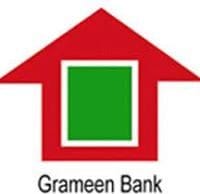LAPO’s Laudable Lift
In mid-1980s, against the back drop of financial difficulties of poor Nigerians following the liberalisation policies of its government, a social reformer, Mr. Godwin Ehigiamusoe came forward and set up the Lift project. He chose micro-credit as a tool to help the poor overcome their all-pervading poverty.
Nigeria is the most populated sub-Saharan African country, having about 112 million people. About 54 million are women, and 70% of total population are poor; only 51% of the total population are literate. LAPO was formally incorporated as a non-profit, non-governmental organization in 1993, with the objective of providing financial services and raising awareness amongst deprived people regarding their social, economic and political rights, as well as their contributions to society.
The target group of LAPO are the poorest of the Nigerian community. To reach the target, LAPO used self-created indicators such as quality and capacity of food intake, condition and space of dwelling place, level of education, quality of clothes and so on. LAPO came in contact with Grameen Trust in 1992 and with the financial and technical support of GT, gained momentum. Recently, this organization has spread its wings from Ogwashi-Uku to several communities in Edo, Delta and Kogi states as well as the Federal Capital Territory. So far, GT has approved a total of US$ 65,297 to LAPO for development of its microfinance program. The credit program of LAPO uses Grameen solidarity lending approach to target economically active poor.
LAPO has different loan products for various income generation activities. The regular loans are mainly for activities with quick return, includes trading, tailoring, vegetable and food vending amongst others. The asset loan is a form of micro leasing with which income-generating assets are purchased, for example, grinding and processing machines, motorbikes for commercial transportation especially in rural communities. Farming loan is designed to assist farmers in financing their activities.
In the year 2002, LAPO introduced a new product called Credit-for-Shares. This product won the CGAP sponsored Award for Innovations in micro-finance in 2002. Credit-for-Shares was developed to address two major issues. One was to rescue the poor from successive devastating reform programs of the Central Government with the objective of providing funds and information to the poor to effectively participate in the privatization program. The other motivation was to give the poor access to the stock market, creating a viable strategy for generation of wealth on a long-term basis. This would address the problem of economic vulnerability. During the year 2002, forty LAPO women benefited from this product with an average loan size of US$150.
LAPO believes that for meaningful impact, provision of financial services should be supported by social development programs. Over the years, LAPO has established semi- autonomous institutions to provide social development services to its clientele and others.
LAPO Development Center (LADEC) has developed a Micro-enterprise Development Training Package for borrowers, to emphasize business diversification and assist borrowers in identifying business activities in rural and urban economic sectors.
To raise awareness among rural dwellers, LADEC carries a television discussion program called Bridging the Gap on the issues of political participation, civil responsibilities, local gender inequality generating structures and practices in rural communities.
LAPO Health Project carries out training sessions for members on family planning and reproductive health, child health and nutrition.
LAPO Development Services offers assistance in the formation of NGOs, human resources development training, business plan development for micro finance and other institutions, designing of new appropriate micro credit scheme and rehabilitation of existing programs.
Performance and impact
Up to April 2003, LAPO had set up 22 branches and disbursed more than US$ 5 million to 23,440 poor borrowers. Of its members, 98% are women The current loans outstanding is US$ 1.4 million with a repayment rate of 100% and zero
portfolio at risk. LAPO is now 147 % operationally self-sufficient. This was achieved by maximizing the repayment rate and ensuring more efficient supervision of loans disbursed. Each staff in LAPO is serving 335 borrowers with a loan portfolio of US$ 18,802.
LAPO received the Corporate Award for People Empowerment from Growing Business Foundation (GBF) for its “valuable contribution towards GBF’s vision of sustainable Economic Development”.
Compiled by Tasmina Rahman
